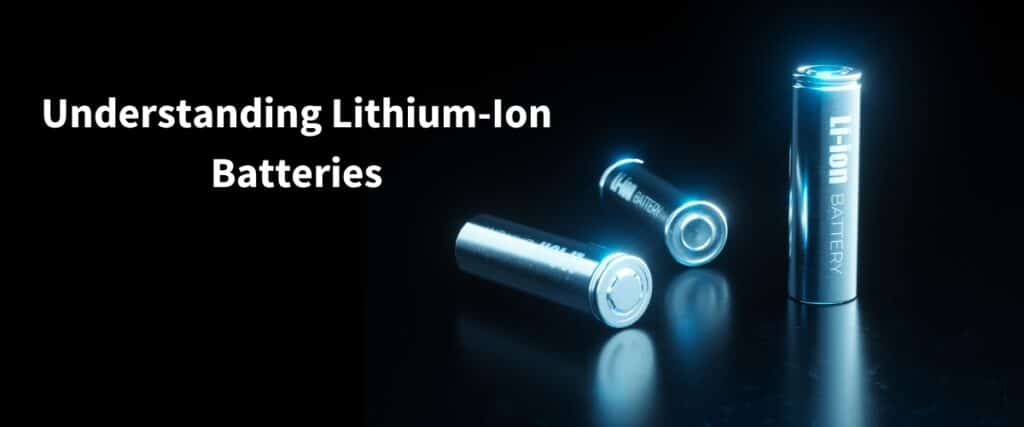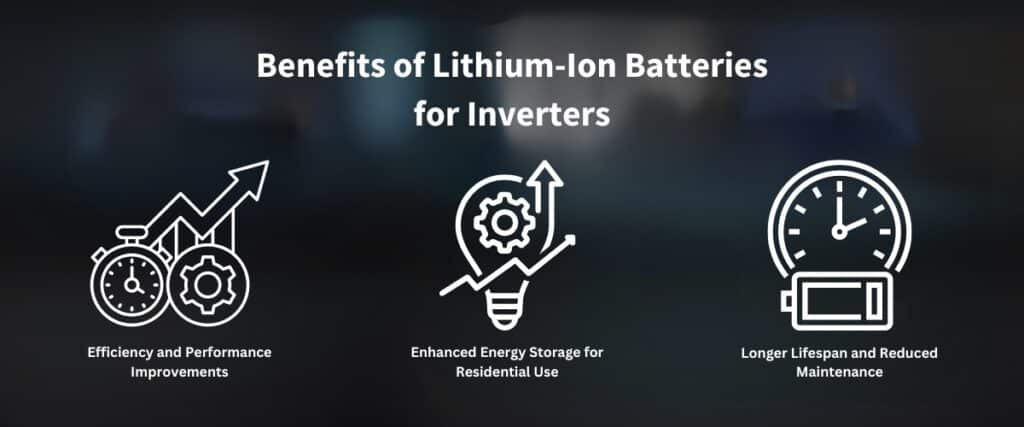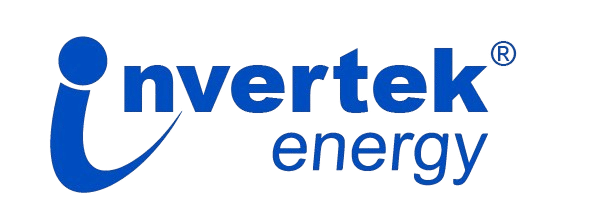Lithium-ion batteries are now widely used and have revolutionized energy storage, particularly for inverters. They have gained popularity in recent years for their efficiency and reliability. Lithium-ion batteries have transformed the way we store energy, making them a preferred choice for many applications.
For homeowners and renewable energy enthusiasts, the question remains—can you install a lithium-ion battery with your existing inverter? Understanding this compatibility is crucial for anyone looking to upgrade their energy system for better efficiency and performance.
This blog post will walk you through the essentials of lithium-ion batteries, their benefits, and the steps to seamlessly integrate them with your current inverter setup. From practical examples to future trends, we’ve got you covered.


Understanding Lithium-Ion Batteries
What Are Lithium-Ion Batteries?
Lithium-ion batteries are a type of rechargeable battery that has gained widespread use because their high energy density and efficiency. Unlike traditional lead-acid batteries, they offer a lightweight alternative, making them increasingly popular for various applications, including inverters.
Types of Lithium-Ion Batteries
Among the different types of lithium-ion batteries, Lithium Iron Phosphate (LiFePO4) stands out. Known for their excellent thermal stability and longevity, LiFePO4 batteries are a reliable choice for both residential and commercial energy storage solutions.
Advantages of Lithium-Ion Batteries
Lithium-ion batteries have several advantages. They provide more energy and charge faster. They also last longer and require less maintenance compared to lead-acid batteries. This makes them incredibly appealing for those looking to maximize their energy efficiency.


Benefits of Lithium-Ion Batteries for Inverters
Efficiency and Performance Improvements
One of the most significant benefits of using a lithium-ion battery for an inverter is the substantial boost in efficiency and performance. Lithium-ion batteries offer a more consistent discharge rate, ensuring that your inverter operates smoothly and efficiently.
Enhanced Energy Storage for Residential Use
A lithium-ion battery for a home inverter can significantly enhance your home’s energy storage capabilities. This translates to more reliable power during outages and better management of renewable energy resources like solar panels.
Longer Lifespan and Reduced Maintenance
Lithium-ion batteries require less maintenance and have a longer lifespan compared to traditional batteries. This means fewer replacements and less hassle for homeowners, allowing them to focus on enjoying the benefits of their energy system.
Compatibility of Lithium-Ion Batteries with Existing Inverters
Key Factors to Consider
Before you decide to pair a lithium-ion battery with your existing inverter, it’s essential to consider several factors. These include the inverter’s voltage, charging algorithm, and overall compatibility with lithium-ion technology.
Understanding Inverter Specifications
Not all inverters are created equal. Some may be specifically designed for traditional batteries, while others can seamlessly integrate with lithium-ion batteries. Check your inverter’s specifications to ensure compatibility.
Compatibility with Different Inverter Types
Different types of inverters exist. Some examples include pure sine wave and modified sine wave inverters. These inverters may work better with lithium-ion batteries. Understanding your inverter type is crucial to avoid potential issues down the line.
Steps to Install a Lithium-Ion Battery with an Existing Inverter
Assessing the Current Inverter Setup
The first step in installing a lithium battery for inverter with an existing inverter is to assess your current setup. This includes evaluating the condition of your inverter and ensuring it meets the necessary specifications for lithium-ion batteries.
Necessary Modifications and Adjustments
Depending on your inverter’s compatibility, you may need to make certain modifications or adjustments. This could involve updating the firmware or adding additional components to facilitate the integration of the lithium-ion battery.
Ensuring Safe Installation and Operation
Safety should always be a priority when working with electrical systems. Ensure that all connections are secure and that the installation follows industry standards to prevent any hazards.
Integrating Solar Inverter with Lithium Battery
Advantages of Using a Solar Inverter with Lithium Battery
Integrating a solar inverter with a lithium battery can take your renewable energy setup to the next level. This combination allows for better energy storage, improved efficiency, and greater resilience during power outages.
Specific Benefits of LiFePO4 Batteries in Solar Applications
LiFePO4 batteries are particularly well-suited for solar applications because their thermal stability and long cycle life. This makes them an excellent choice for those looking to maximize the benefits of their solar energy system.
How to Integrate with Solar Power Systems
Adding a lithium battery to your solar system means making sure everything works well together. This may require additional equipment or adjustments to your current setup.
Common Challenges and Solutions
Addressing Common Issues Faced During Installation
While the benefits of lithium-ion batteries are clear, there are also common challenges that may arise during installation. These can include compatibility issues, safety concerns, and technical difficulties.
Solutions to Potential Compatibility Problems
Fortunately, many of these challenges have solutions. For example, firmware updates can resolve compatibility issues, and additional safety measures can mitigate risks. Working with a professional installer can also help ensure a smooth process.
Future Trends and Innovations
Emerging Technologies in Lithium-Ion Battery and Inverter Compatibility
The field of lithium-ion batteries and inverters is constantly evolving. Emerging technologies promise even better compatibility and performance, paving the way for more efficient and sustainable energy systems.
Predicted Advancements in Lithium-Ion Home Battery Systems
Looking ahead, we can expect continued advancements in lithium-ion home battery systems. These innovations will likely lead to even greater efficiency, longer lifespans, and more user-friendly integration processes.
Conclusion
In summary, installing a lithium-ion battery with an existing inverter is not only feasible but also highly beneficial. From improved efficiency and performance to enhanced energy storage and reduced maintenance, the advantages are clear. Homeowners can have a better energy system by knowing what factors are important and following the right steps.
If you’re considering making the switch, now is the time. Using a lithium-ion battery at home is now easier and more beneficial. This is because of new technologies and support for renewable energy.
FAQs
Can I use a lithium-ion battery with any inverter?
While many inverters can be adapted to work with lithium-ion batteries, it’s essential to check the specifications and compatibility of your particular inverter model.
What are the benefits of lithium-ion batteries over traditional batteries?
Lithium-ion batteries offer higher energy density, longer lifespan, faster charging times, and reduced maintenance compared to traditional lead-acid batteries.
Is it safe to install a lithium-ion battery myself?
While it’s possible to install a lithium-ion battery yourself, it’s highly recommended to work with a professional to ensure safety and proper integration with your existing inverter.
By following these guidelines and understanding the compatibility factors, you can confidently upgrade your energy system and enjoy the numerous benefits of lithium-ion technology.


